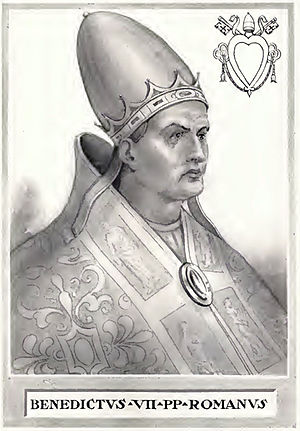974
Appearance
| Millennium: | 1st millennium |
|---|---|
| Centuries: | |
| Decades: | |
| Years: |
| 974 by topic |
|---|
| Leaders |
| Categories |
| Gregorian calendar | 974 CMLXXIV |
| Ab urbe condita | 1727 |
| Armenian calendar | 423 ԹՎ ՆԻԳ |
| Assyrian calendar | 5724 |
| Balinese saka calendar | 895–896 |
| Bengali calendar | 381 |
| Berber calendar | 1924 |
| Buddhist calendar | 1518 |
| Burmese calendar | 336 |
| Byzantine calendar | 6482–6483 |
| Chinese calendar | 癸酉年 (Water Rooster) 3671 or 3464 — to — 甲戌年 (Wood Dog) 3672 or 3465 |
| Coptic calendar | 690–691 |
| Discordian calendar | 2140 |
| Ethiopian calendar | 966–967 |
| Hebrew calendar | 4734–4735 |
| Hindu calendars | |
| - Vikram Samvat | 1030–1031 |
| - Shaka Samvat | 895–896 |
| - Kali Yuga | 4074–4075 |
| Holocene calendar | 10974 |
| Iranian calendar | 352–353 |
| Islamic calendar | 363–364 |
| Japanese calendar | Ten'en 2 (天延2年) |
| Javanese calendar | 875–876 |
| Julian calendar | 974 CMLXXIV |
| Korean calendar | 3307 |
| Minguo calendar | 938 before ROC 民前938年 |
| Nanakshahi calendar | −494 |
| Seleucid era | 1285/1286 AG |
| Thai solar calendar | 1516–1517 |
| Tibetan calendar | 阴水鸡年 (female Water-Rooster) 1100 or 719 or −53 — to — 阳木狗年 (male Wood-Dog) 1101 or 720 or −52 |

Year 974 (CMLXXIV) was a common year starting on Thursday (link will display the full calendar) of the Julian calendar.
Events
[edit]By place
[edit]Europe
[edit]- Battle of Danevirke: Emperor Otto II defeats the rebel forces of King Harald I, who has invaded Nordalbingia (modern-day Holstein), to shake off imperial overlordship. Otto's armies swiftly subdue the Danes, consolidating the frontier between Scandinavia and Northern Germany. Meanwhile, Henry II begins a rebellion against his cousin Otto. He forges alliances with Bavarian and Saxon nobles.
England
[edit]- King Edgar I gives English help to Prince Hywel in ousting his uncle, King Iago of Gwynedd from his kingdom.
- A great earthquake occurs in England.[1]
Abbasid Caliphate
[edit]- 5 August – Caliph al-Muti, ill and incapacitated, is deposed and succeeded by his son al-Ta'i, dying shortly after.[2]
Africa
[edit]- The Qarmatians are defeated north of Cairo by Fatimid forces under General Jawhar al-Siqilli. He consolidates Fatimid rule and sends a legation to the Christian land of Nubia to secure the southern border of Egypt. Arab traders introduce Islam to the population, which gradually supplants Christianity.
- An offensive, by the Spain-based Caliphate of Córdoba brings the Maghrebi Idrisid Dynasty to an end. Caliph Al-Hakam II maintains the supremacy of the caliphate over the kingdoms of Navarra, Castile and León.[3]
China
[edit]- The Liao Dynasty exchanges ambassadors with the Song Dynasty on New Years Day (Spring Festival).
- The city of Fuzhou, located in Fujian province, builds new city walls.
By topic
[edit]Religion
[edit]- Summer – Pope Benedict VI is imprisoned in the Castel Sant'Angelo at Rome, where he is strangled to death through the influence of the powerful Crescentii family. Crescentius I (the Elder), Italian politician and aristocrat, engineers an election and replaces Benedict with his own candidate Franco, who ascends under the title anti-Pope Boniface VII.[4]
- Fall – Boniface VII is expelled by order of Otto II and flees to Constantinople, taking the Church treasury of the Vatican Basilica along with him.[5] He is succeeded by Benedict VII as the 135th pope of the Catholic Church.
- An abbey is founded at the site of Mönchengladbach (Germany).
Births
[edit]- Bruno of Querfurt, German missionary bishop (d. 1009)
- Ermengol I, count of Urgell (d. 1010)
- Frederick, count of Walbeck (d. 1018)
- Fujiwara no Korechika, Japanese nobleman (d. 1010)
- Lý Thái Tổ, emperor of Lý dynasty (d. 1028)
Deaths
[edit]- March 7 – John of Gorze, Frankish abbot and diplomat
- October 12 – Al-Muti, caliph of the Abbasid Caliphate (b. 914)[2]
- Al-Qadi al-Nu'man, Fatimid jurist and historian
- Benedict VI, pope of the Catholic Church
- Fujiwara no Yoshitaka, Japanese waka poet (b. 954)
- Muhammad Bal'ami, Persian historian and vizier
- Ratherius (or Rathier), bishop of Verona
- Shi Chonggui, emperor of Later Jin (b. 914)
References
[edit]- ^ Stratton, J.M. (1969). Agricultural Records. John Baker. ISBN 0-212-97022-4.
- ^ a b Güner, Ahmet (2006). "Mutî'-Lillâh". TDV Encyclopedia of Islam, Vol. 31 (Muhammedi̇yye – Münâzara) (in Turkish). Istanbul: Turkiye Diyanet Foundation, Centre for Islamic Studies. pp. 401–402. ISBN 978-975-389-458-6.
- ^ Gilbert Meynier (2010). L'Algérie cœr du Maghreb classique. De l'ouverture islamo-arabe au repli (658-1518). Paris: La Découverte; p. 42.
- ^ Richard P. McBrien (2000). Lives of the Popes: The Pontiffs from St. Peter to Benedict XVI, p. 186 (Harper Collins).
- ^ Collins, Roger (2009). Keepers of the Keys of Heaven: A History of the Papacy, Basic Books.
